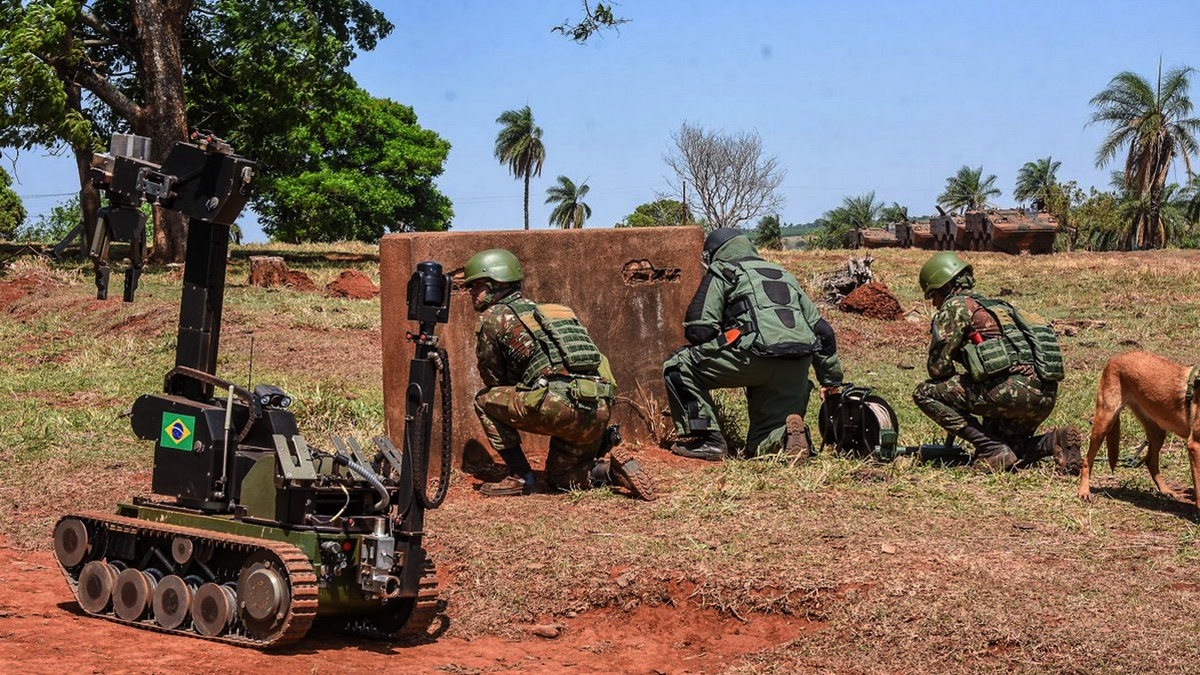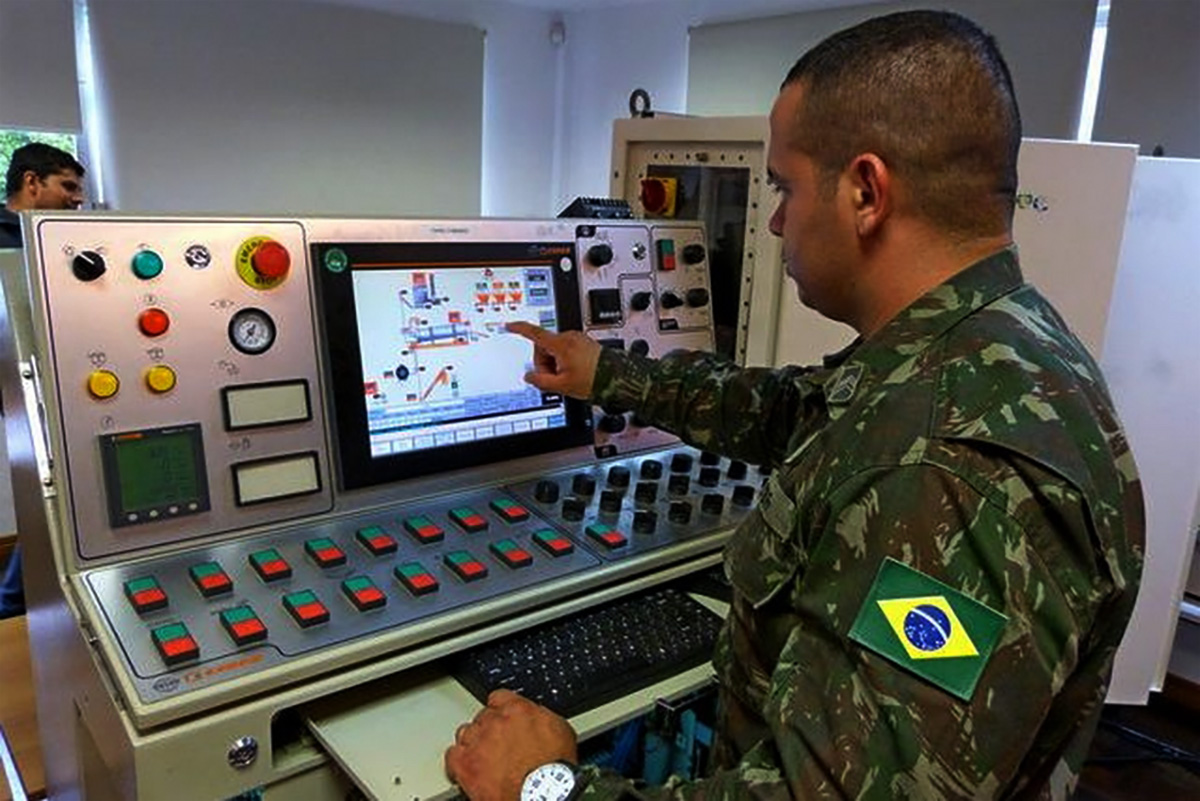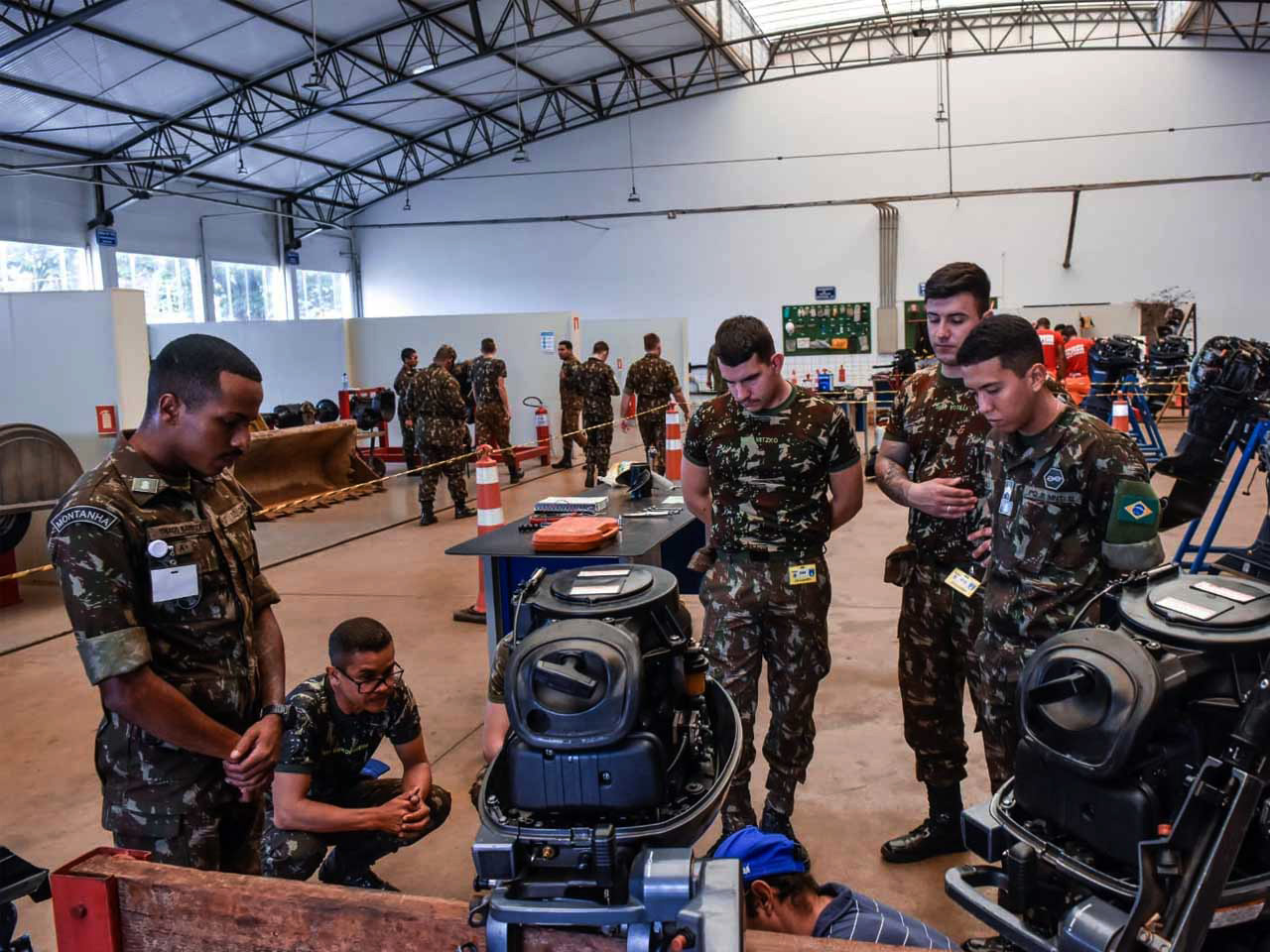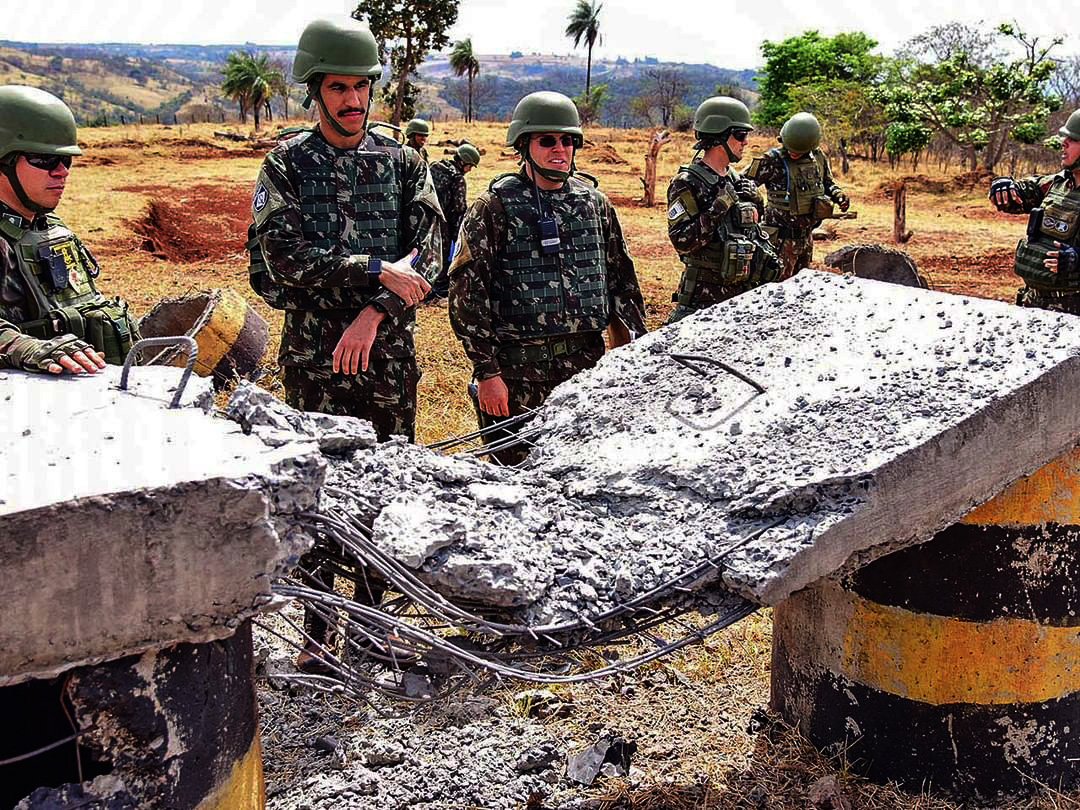Brazilian Army Engineer Instruction Center
By Lieutenant Colonel Francisco Da Cas
Article published on: November 1, 2024 in the Engineer 2024 E-Edition
Read Time: < 4 mins
Ao braço firme! Avante Remar! (Hey! Ho! Heave! Forward Row!)

A student performs a task during the Heavy Engineer Equipment Course
Brazilian Army engineers act as a vital force multiplier, helping to achieve and maintain combat objectives while providing essential engineering support for military operations. They also play an important role in national development through the construction of infrastructure and support during disasters.1
In 2005, the Brazilian Army established the Brazilian Army Engineer Instruction Center (CI Eng/EB) next to the 1st Railway Battalion in Araguari, Minas Gerais, Brazil. CI Eng/EB was created to provide technical training in general engineering and prepare engineers for peacekeeping missions.
Expansion and Modernization
With the modernization of the Brazilian Army in the 2010s, CI Eng/EB began to expand its activities to cover various fields of engineering while also offering multiple courses to benefit the entire force. This expansion contributed to improvements in doctrine and the modernization of equipment. Current initiatives will further expand CI Eng/EB capabilities, thereby increasing its value to the Brazilian Army.

An engineer team practices an explosive ordnance disposal task supported by a robot and a mine detection dog during a multidisciplinary exercise.
Organizational Structure
CI Eng/EB is organized into several divisions:
- Training Division:
- Technical Teaching Section.
- Psychological Pedagogical Section.
- A, B, and C Training Sections.
- Distance Learning Section.
- Planning and Doctrine and Research Division:
- Technological Innovation Section.
- Doctrine Section.
- Planning Section.
- Administrative and Training Support Division.
Facilities and Coursework
In addition to classrooms, CI Eng/EB includes construction equipment simulators; training facilities for construction activities; soil laboratories; water supply systems; and explosive-devices neutralization, demining, and diving facilities. These additional resources allow students to practice the techniques they learn in the classroom.

An NCO operates an asphalt plant during the Asphalt Paving Course at the CI Eng/EB.

A practical portion of in the Outboard Motor Maintenance and Operation Course.
CI Eng/EB offers a wide range of training, including—
- Long-term courses (6 to 24 weeks):
- General Engineering Operations Course: Qualifies offers and noncommissioned officers (NCOs) to execute construction works.
- Heavy Engineer Equipment Course: Prepares officers and NCOs for maintenance management.
- Site Manager Course: Qualifies NCOs for horizontal-construction site management.
- Levels 1 and 2 Explosives Ordnance Disposal and Neutralization Course: Trains officers and NCOs in explosives management and demining.
- Water Supply Course: Trains NCOs to manage water supplies in Army units.
- Short-term courses (1 to 5 weeks):
- Construction Management.
- Equipment Fleet Management.
- Well Drilling.
- Asphalt Paving.
- Explosives Operation.
- Real Estate Appraisal.
- Soil Testing.
- Railway Construction Training.
- Diving Equipment Maintenance.
- Installation Construction Management.
- Geospatial Engineering.
- Environmental Protection.
- Outboard Motor Maintenance and Operation.
- Firefighting and Fire Prevention.
- Power Generator Maintenance.
- Real Estate Management.
International Collaboration
Through bilateral agreements or triangular partnerships with the United Nations, CI Eng/EB has expanded its activities to offer courses for military personnel from other Services and friendly nations in North and South America, Africa, and East Timor. These partnerships strengthen international relations, showcasing the expertise of Brazilian Army engineers.
Humanitarian Demining Missions
With expertise gained from more than 30 years of experience in humanitarian demining missions, the Brazilian Army specializes in training military personnel on demining and neutralizing explosive devices. A new course to train Brazilian Army engineers, and potentially engineers from other countries, has recently been added to contribute to reducing the global threat of mines.
Future Initiatives
In 2025, CI Eng/EB will introduce the first-ever Level 3 Explosive Ordnance Disposal and Neutralization Course, conducted in English, to train army engineers and engineers from allied nations on neutralizing explosive devices.

An instructor evaluates the results of a bridge demolition examination during the Explosives Operation Course.
Conclusion
CI Eng/EB plays a critical role in training general and combat engineers, as well as engineers in the geospatial and environmental arenas. It contributes significantly to generating and modernizing engineering capabilities, ensuring the effective use of engineers in various scenarios, from combat to international peacekeeping operations, across all Brazilian regions.
For more information about CI Eng/EB, see the CI Eng/EB web page at http://www.2bfv.eb.mil.br/index.php/pt/ci-eng.
Endnote:
1. Francisco Da Cas, “Strong Arms/Friendly Hands: Brazilian Army Engineers Benefit to the Brazilian Nation,” Army Engineer Association Magazine, Winter 2024, p. 23.
Author
Lieutenant Colonel Francisco Da Cas is the Brazilian liaison officer at the Maneuver Support Center of Excellence, Fort Leonard Wood, Missouri. He graduated as an engineer officer from the Brazilian Army Military Academy, and he holds a master’s degree stricto sensu in military science from the Brazilian Army Captain’s School.